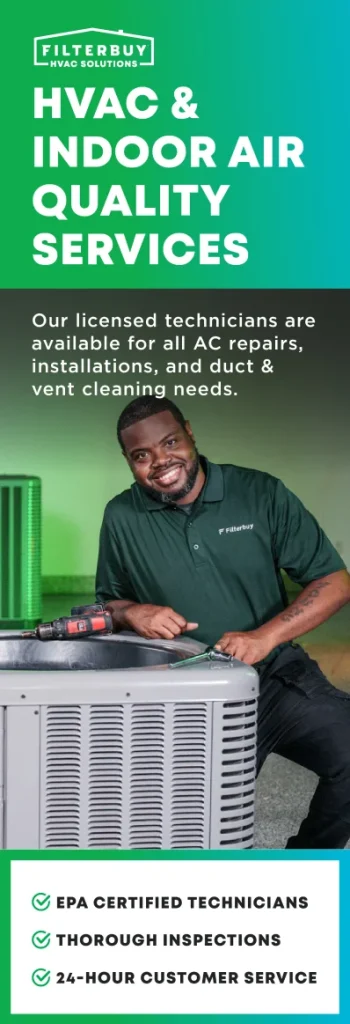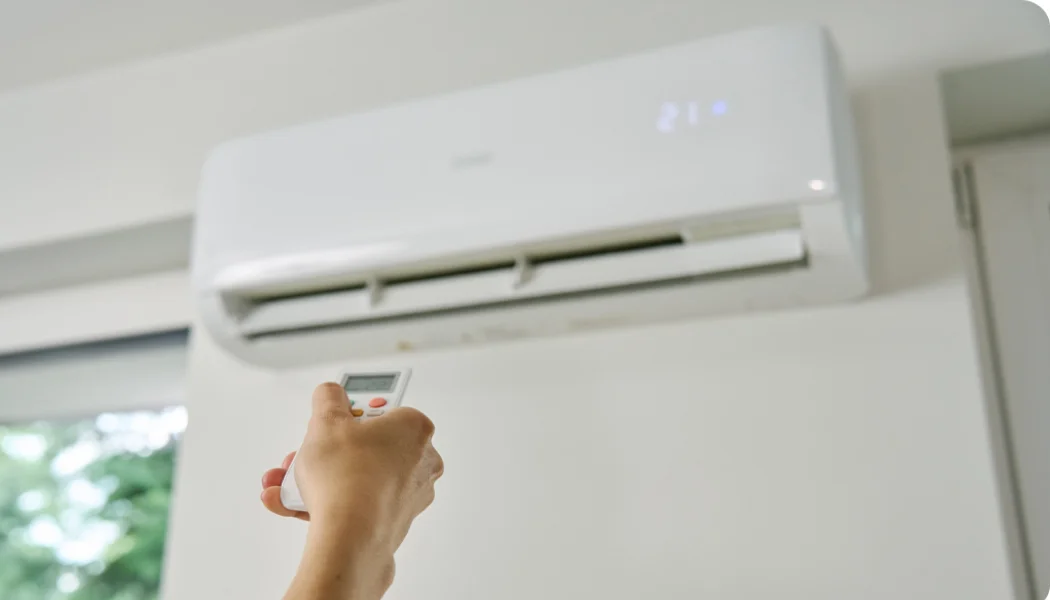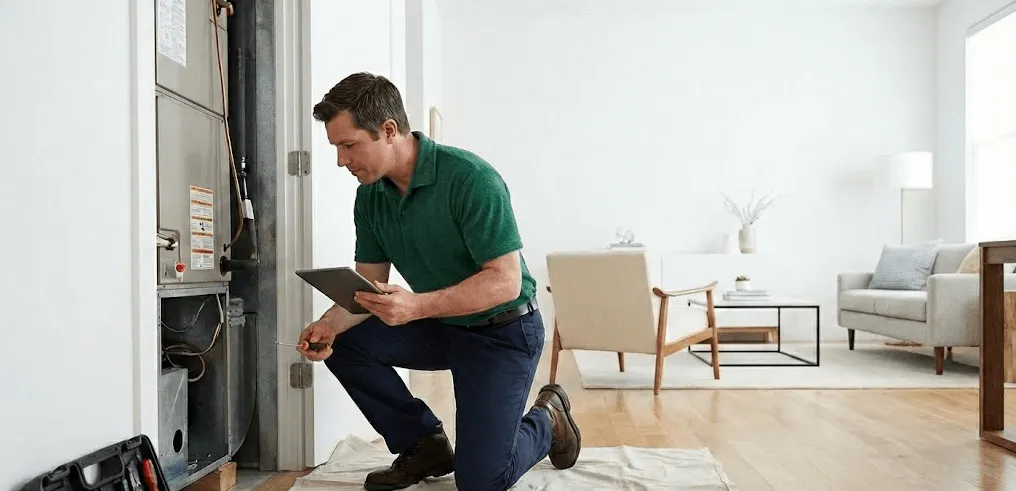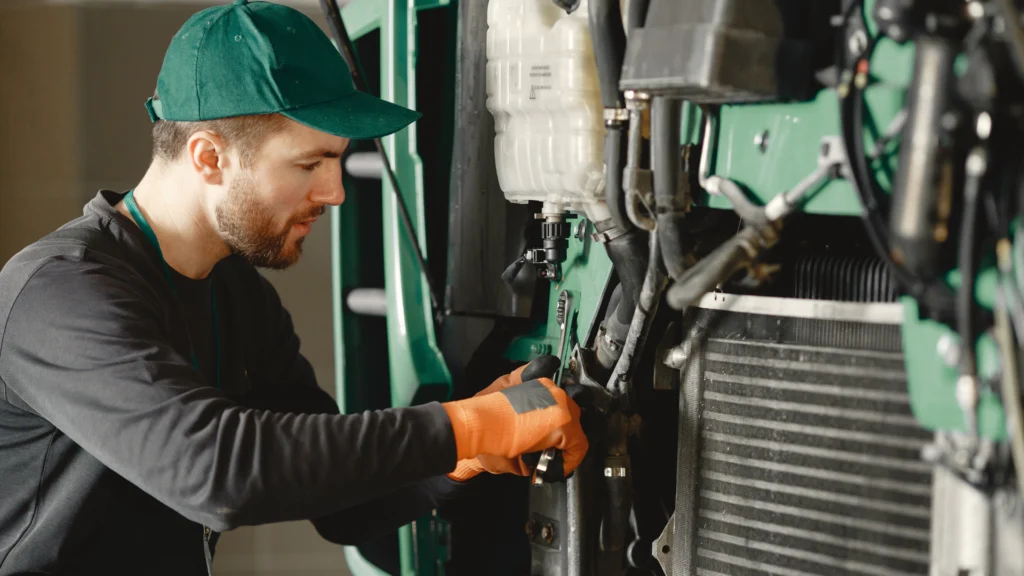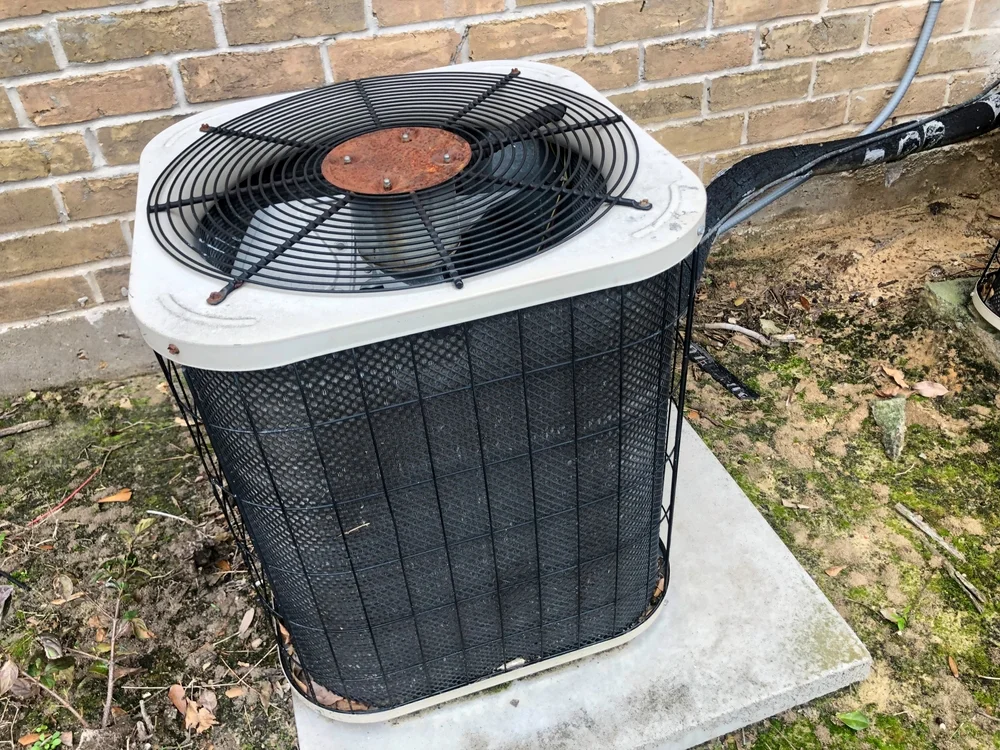An AC breakdown is stressful especially when you need it most. But don’t worry! Many of the AC issues are both common and fixable. Not cooling like it used to? Weird noises? Let’s walk through what could be going on. This guide will help you understand the top AC problems and tell you exactly when it’s time to call a pro.
Top Takeaways
- Common air conditioning problems are solved by checking the basics.
- Contact a licensed HVAC technician like Filterbuy HVAC Solutions for a professional diagnosis and repair.
- Don’t skip HVAC checkups. A professional checkup can catch minor issues before they become major problems.
- Trust the experts! A company like Filterbuy HVAC Solutions offers the expertise and dependable HVAC service.
1. AC Not Turning On
A simple electrical issue can be the problem if the AC is not turning on.
- Thermostat
- Tripped breaker
- Blown fuse
Solution:
- Check your thermostat settings. Make sure it’s on and set to cool.
- Go to the breaker box and reset it.
- Inspect for a blown fuse in the unit itself.
2. Air Conditioner Not Cooling
If your AC is running but not blowing cold air, a few common issues could be the cause:
- Dirty air filter
- Blocked vents or ducts
- Low refrigerant
Solution:
- Replace air filters on time. This ensures proper airflow.
- Make sure vents or ducts are open. Away from obstructions.
The problem may be low refrigerant if these simple fixes don’t work. This indicates a leak. This is a complex issue requiring specialized tools. It’s essential to call a licensed HVAC professional like FIlterbuy HVAC Solutions to diagnose and safely address it.
3. AC Running Constantly
The following are a few common issues if your air conditioner is running constantly:
- Incorrect thermostat settings
- Clogged filter
- Faulty parts
Solution:
- Check your thermostat settings. Ensure they are correct.
- Inspect your air filter. A clogged filter restricts airflow. This forces the unit to work harder.
The problem was caused by a faulty part if the problem persists. Schedule professional HVAC maintenance to have it diagnosed and repaired.
4. Strange Noises
When your AC starts making noises it’s a clear sign that something is wrong.
- Loose parts
- Motor issue
- Debris in the fan
These issues lead to more serious and expensive damage. Immediately turn off the unit and contact a qualified technician from Filterbuy HVAC Solutions.
5. Water Leaks Around the Unit
When you see water leaking around your AC unit it’s often caused by one of two common problems.
- Clogged drain line
- Frozen evaporator coils
Solution:
- Use a wet or dry vacuum to suction out the clog from the outside.
- If frozen evaporator coils are the issue it’s best to call a qualified technician.
6. Foul or Musty Odors
If you notice musty odors coming from your AC it’s likely a sign of mold or a dirty air filter.
Solution:
- Replace the air filter immediately.
- For more persistent smells, call a professional duct cleaning to remove any mold and use an AC-safe disinfectant to clean the coils.
7. AC Blowing Hot Air
The problem could be due to a few issues.
- Thermostat error
- Refrigerant link
- Dirty coil
Solution:
- A simple thermostat error can be fixed by resetting it.
- If the cause may be a refrigerant leak, this requires a professional to perform an inspection and recharge the system.
- A dirty evaporator coil also prevents proper cooling. A professional cleaning is necessary to restore your unit’s efficiency.
8. High Indoor Humidity
High indoor humidity is often a sign that your AC system is not properly removing moisture from the air. This can be caused by:
- Undersized system
- Poor performance
Solution:
- Replace the air filter.
- Use a standalone dehumidifier to supplement your AC.
- Schedule a professional HVAC evaluation. This is to ensure your unit is the right size and is operating at peak efficiency.
9. Frozen Evaporator Coils
This problem is a sign of poor airflow. This can be caused by:
- Dirty air filter
- Blocked return vent
Solution:
- Turn off the unit and let the coils completely defrost.
- Replace your old filter and check that all vents are clear.
If the unit goes back on, schedule a professional service to ensure the core problem is resolved. This also prevents the issue from happening again. The Department of Energy confirms that the key benefit of regular filter replacement is that it ensures your HVAC operates at peak efficiency.
10. Increased Energy Bills
Spike in your bills is a sign that your HVAC is working hard. The culprits are:
- Dirty filters
- An aging system
- Overused unit
Solution:
- Start with regular maintenance. Replace your filter.
- Use an energy saving setting on your thermostat. This is to manage your unit’s workload and lower your bills.
Now that you know the top 10 AC problems don’t ignore them! Schedule a repair today. Prompt repair keeps your AC unit running efficiently. It also prevents more problems down the road. Preventive Tips to Keep Your AC Efficient
According to EcoMENA.org the lack of AC maintenance causes a lot of problems. These simple steps are the best way to avoid costly repairs. This ensures your home stays cool all summer long. A little maintenance goes a long way. It extends the life of your HVAC and keeps it efficient.
- Schedule HVAC tune ups.
- Keep the outdoor unit open.
- Use a smart thermostat for better efficiency.
- Change filters regularly. Filterbuy makes it easy to keep your air clean. Our subscription service automatically delivers new filters so you don’t have to remember.
Why Filterbuy HVAC Solutions?
At Filterbuy HVAC Solutions we understand that your air conditioner is most likely to break down when you need it the most. That’s why we’re committed to being there for you. With expert service and dependable products whenever you need us.
Our technicians are not only highly trained. They keep learning to stay updated with the latest industry standards. Count on our team to deliver quality work that meets the highest standards!
Frequently Asked Questions
1. What are the top issues that cause ACs to malfunction?
Here are the top list:
- clogged filters
- refrigerant leaks
- thermostat issues
- frozen evaporator coils
- dirty condenser coils
- capacitor or compressor failures
These AC problems often result from poor maintenance or aging equipment.
2. What are the first steps to take when troubleshooting an AC problem?
Start by checking your thermostat settings, air filter, circuit breakers and air vents. Inspect the outdoor unit and listen for unusual sounds if the unit runs but doesn’t cool or makes odd noises. Call an HVAC professional for a diagnosis if nothing is obvious.
3. What component in an AC is most likely to fail?
The capacitor fails most frequently. It provides the electrical jolt that starts the compressor and fan motors. When it weakens or dies, your AC won’t start or will struggle to run.
4. Why isn’t my home getting cool even though the AC is blowing cold air?
The HVAC might be undersized for the space. Or the ductwork could be leaking. It’s also possible that the thermostat might be in the wrong location. Dirty filters and low refrigerant levels also prevent the AC from cooling the house evenly.
5. What’s the very first thing I should check if my AC stops working?
Check the thermostat to ensure it’s on and set to “cool.” Then inspect the circuit breaker and look at the air filter. These are quick places to troubleshoot if the unit has no power or airflow.
6. What is the leading cause of air conditioner failure?
Neglected maintenance leads the list. Dirty filters, unchecked refrigerant levels and ignored wear on components like capacitors or coils cause the system to overwork and eventually fail.
7. What are the signs of low refrigerant in an AC system?
Look for weak airflow, warm air from the vents, ice on the refrigerant lines or a hissing sound near the unit. Low refrigerant also causes the system to run longer and still not cool effectively.
8. How can I tell if my AC’s capacitor has failed?
If the fan doesn’t spin, the system hums but won’t start or the unit shuts off unexpectedly, the capacitor may be faulty. A bulging top or leaking fluid are visual signs. A technician can confirm this with a multimeter.
9. Should I be adding refrigerant to my AC system regularly?
Never. A properly sealed AC should not lose refrigerant. If it’s low, there’s a leak that must be repaired before adding more refrigerant. Topping off without fixing the leak only masks the problem.
10. Is it better to turn off my AC if it’s not cooling properly?
Yes. Running a malfunctioning AC damages internal components. Turn it off and inspect the thermostat, filter and breaker. Contact a technician before restarting it if nothing looks wrong.
11. What are the most frequent types of repairs performed on air conditioners?
Replacing the capacitor is the most common repair. It’s an inexpensive fix but critical to the unit’s operation. Other frequent repairs include clearing clogged drains and replacing contactors or fan motors.
12. What is the average lifespan of a central air conditioning unit?
Most AC units last 10 to 15 years with proper maintenance. Units in hot climates or those poorly maintained often need replacement sooner. Regular servicing helps extend their lifespan.

